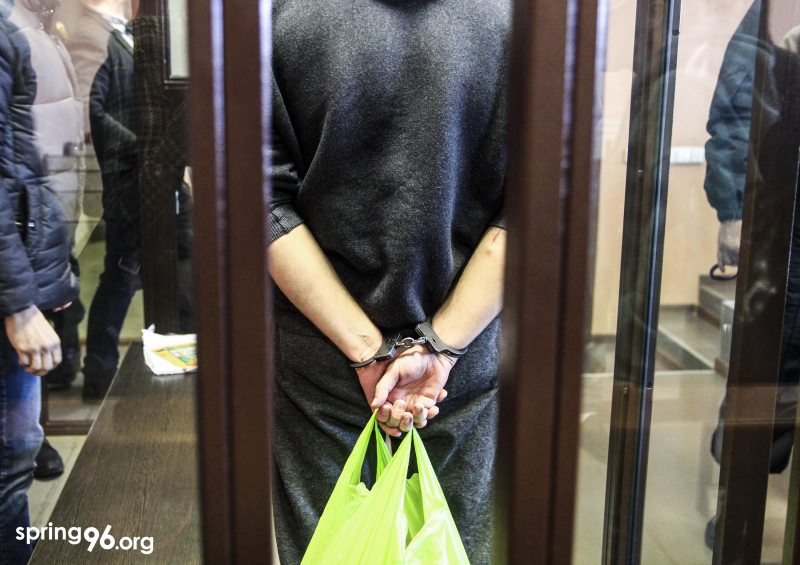Eighty-nine Belarusians convicted on political grounds in April
The Human Rights Center “Viasna” continues to monitor politically motivated criminal trials related to the exercise by citizens of their fundamental rights, such as freedom of expression and peaceful assembly. Starting with the election campaign for the presidential elections in 2020, the Belarusian authorities have been actively using the judicial system in order to suppress any criticism of the authorities and discussions on the further development of the state.

Nearly hundred people convicted in protest-related criminal trials in March
In April the Human Rights Center Viasna observed a continuing trend toward criminal prosecution of citizens for political reasons. The political prisoner count has increased by 56 in the month.
Viasna human rights defenders are aware of at least 89 citizens convicted on political grounds in April. Of those, 71,9% are men and 28,1% are women.
Of all April sentences known to human rights defenders, 28,1% were under the defamation articles, which the human rights community has long insisted on excluding from the Criminal Code. 58,4% were convicted under the articles on preparation of group actions grossly violating public order or active participation in them and mass riots.
Human rights defenders recorded that in April judges continued to impose penalties related to imprisonment and restriction of freedom on most of those involved in “protest” criminal cases. April sentences in numbers:
- 41 people sentenced to a total of 106 years and 4 months of imprisonment;
- 24 people sentenced to a total of 62 years of freedom restriction in an open penitentiary;
- 18 people sentenced to a total of 40 years of freedom restriction under home confinement;
- 6 people sentenced to a total of 18 months under arrest;
- 1 person received a fine of 3200 rubles (about 950 US dollars) as an additional punishment to a freedom restriction;
In April, the courts applied imprisonment in about half of the “protest” criminal cases (46%). Another 27% of the sentences involved restriction of freedom in open penitentiaries. Home confinement was ordered in 20,2% of cases. Arrest (short terms of imprisonment) was used as a punishment in 6,8% of cases.
Thus, various types of custodial sentences were handed down in all of the politically motivated cases in April.

















